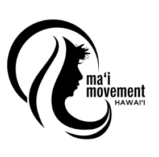ADVOCATE

Never cease to act because you fear you may fail.

Stand for what you believe in.
Are period products essential?
If you answered yes, then you understand how debilitating it is to be without. Yet, 1 in 4 menstruators experience period poverty and face the choice of whether to feed themselves and their children or buy pads every month. Many end up using cloth, rags, tissues, toilet paper or socks, which poses physical health risks linked to reproductive and urinary tract infections. Some have even resorted to giving up their food stamps in exchange for cash to buy sanitary products.
In spite of this, public assistance programs like SNAP and WIC do not deem period products as necessary, and they are excluded under a list alongside alcohol, cigarettes and Red Bull — yet 2014 legislation later allowed individuals to use SNAP benefits to buy ice cream, lobster and Coke.
Food insecurity and period poverty go hand in hand and period poverty, affecting people of all genders, races and backgrounds. It’s time to stop treating menstruation as a “luxury” and start acknowledging sanitary products as a basic human need.
Supplemental Nutrition Assistance Program (SNAP) is a federal program funded through the USDA and provided at the state level by Hawai’i’s Department of Human Services. The program is intended to provide food and nutritional support to qualifying low-income and needy households using payments processed through the Hawai’i Electronic Benefit Transfer (EBT) Program.
The Special Supplemental Nutrition Program for Women, Infants and Children (WIC) is a federal program funded through the USDA aimed at serving low-income pregnant, postpartum, and breastfeeding women, infants, and children up to age 5 who meet income guidelines and have a medical or nutritional risk.

THE LAW
Former Governor Ige signs the first bill related to menstrual equity into law, making period products free in all Hawai’i K-12 public and charter schools. $2 million was also allocated in the state budget to ensure implementation of the law.
